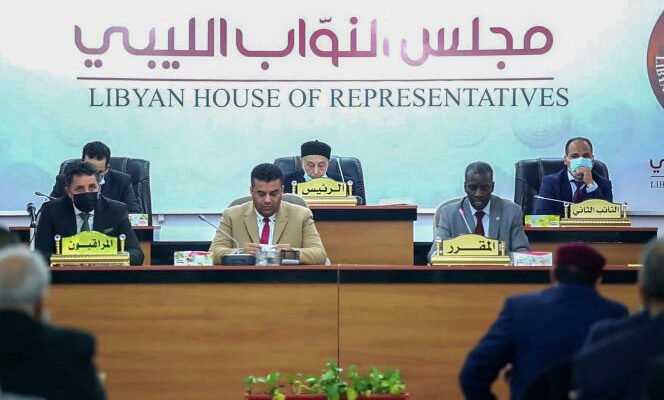Once again, Libya is falling into institutional imbroglio and the fragmentation of its poles of power. One year after the formation of a “government of national unity” (GUN), a happy surprise that fueled hopes for the reunification of a country torn apart since 2014 by the rivalry between Tripolitania (western Libya) and Cyrenaica (east), the risk of a duplication of the authorities awaits again.
Thursday, February 10, the Parliament sitting in Tobruk (east) appointed Fathi Bashagha as Prime Minister to replace the head of the GUN in title, Abdel Hamid Dbeibah, invested in March 2021 and who refuses his ouster. “I will not accept any new phase of transition or parallel authority”, warned Mr. Dbeibah, Tuesday, February 8, in a televised speech. He made it clear that his caretaker government would hand over power only to “an elected government”.
This telescoping between two authorities casts a shadow over Libyan stability as the country healed the wounds opened by the “Battle of Tripoli” (April 2019-June 2020). The conflict had seen the attacking forces of Marshal Khalifa Haftar, the strongman of the east, clash around the capital with a coalition of armed groups from western Libya defending the government of Tripoli recognized by the international community. The fighting had deepened the partition of the country ten years after the fall of the Jamahariya (State of the masses) regime of ex-“Guide” Muammar Gaddafi, killed in Sirte by insurgents in 2011. A ceasefire signed in October 2020 had nevertheless paved the way in the spring of 2021 for a government of reconciliation led by Mr. Dbeibah, a sulphurous businessman from Misrata who has gathered around him figures from the West and the East.
An apparently unnatural alliance
Is it now back to square one? The current collision between MM. Dbeibah and Bashagha is the product of the abortion of the electoral process that the United Nations had tried to promote in the hope of putting the Libyan political landscape back on track. The presidential election supposed to be held on December 24 had to be postponed indefinitely for lack of minimal consensus between Libyan factions. The missed meeting has de facto weakened the base of the Dbeibah GUN whose mission was precisely to organize a double consultation, presidential and legislative. In addition, Mr. Dbeibah had alienated himself from support in the East by running in the presidential election – in which Marshal Haftar would also compete – while his function as Prime Minister in principle prohibited him from any candidacy.
You have 46.04% of this article left to read. The following is for subscribers only.
